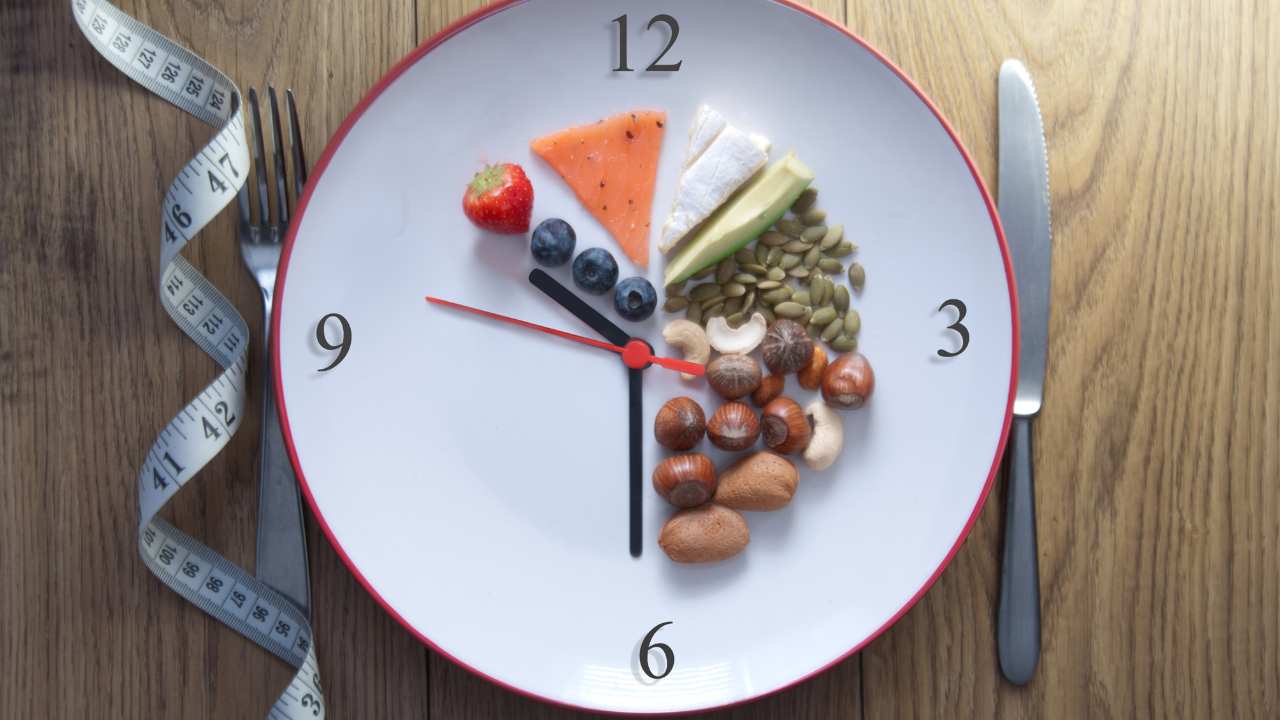I recently finished the Huberman Podcast with Dr. Panda, an known expert in the area of intermittent fasting and circadian rhythms. It was an awesome podcast covering many topics -- be sure to check it out! After listening to this podcast it got me thinking about my own published research in intermittent fasting and how it stacks up against certain dietary patterns, especially a plant-based diet.
We have discussed intermittent fasting before in other blog posts, as well in our 3 course certification bundle. In short, intermittent fasting is adapting the feeding schedule of person to restrict food to certain times or certain days. A classic intermittent fasting schedule that I used in my research was one day of feeding and one day of fasting. Obviously this works well for animal and insect models but in humans it can prove to be difficult for compliance. As such, many researchers, and clinicians now, use a more palatable for of intermittent fasting commonly known as time-restricted feeding. Time restricted feeding is just another term for intermittent fasting where people will use sleep and a more narrow feeding window each day to achieve a fasted state (e.g. feeding at 11am until 7pm, fasting from 7pm until 11am). Thus far intermittent fasting, calorie restriction, and time restricted feeding has shown improvements in health and longevity in animals. Short term studies have also shown positive health benefits for humans, as featured in the Huberman podcast by Dr. Panda.
So which is better: plant-based dieting or intermittent fasting? Both plant-based diets and intermittent fasting have been shown to have potential benefits for long-term health, but it's difficult to say which is definitively "better" as it depends on individual factors and goals.
Plant-based diets have been associated with a reduced risk of chronic diseases such as heart disease, type 2 diabetes, and certain cancers. These diets are typically high in fiber, vitamins, and minerals while being low in saturated fats and cholesterol. However, it's important to note that a plant-based diet does not necessarily equate to a healthy diet. One can still consume highly processed and unhealthy plant-based foods.
Intermittent fasting, on the other hand, has been linked to improved metabolic health and decreased risk of chronic diseases. It involves cycling between periods of eating and fasting, with popular methods including the 16/8 method, where one fasts for 16 hours and eats during an 8-hour window, or the 5:2 diet, where one eats normally for 5 days and restricts calorie intake on 2 non-consecutive days. However, it's important to note that intermittent fasting may not be appropriate for everyone, especially those with certain medical conditions or a history of disordered eating.
Ultimately, the best approach for long-term health may be to adopt a balanced and sustainable diet that works for you as an individual, which may include elements of both plant-based eating and intermittent fasting, as well as other healthy lifestyle factors such as regular exercise, stress management, and sufficient sleep. As physical therapists we should foster patients to explore the right diet for them by encouraging them to engage their physician or registered dietitian in creating a personalized approach to optimizing long-term health. I like to build a referral network in my practice of dieticians, physicians, and specialist with whom I can refer to for specialized care -- you should do the same and also think about expanding your knowledge in the area of nutrition.
If you like what you see here then know there is more in our 3 board-approved continuing education courses on Nutrition specific for Physical Therapists. Enroll today in our new bundled course offering and save 20%, a value of $60!
- NEW - Online Discussion Group
- Live cases
- webinars
- lecture
- Live Q&A
- over 600 videos - hundreds of techniques and more!
- Check out MMT Insiders

















Post a Comment
Post a Comment